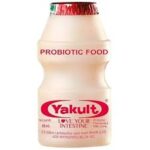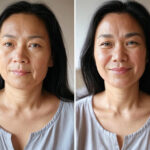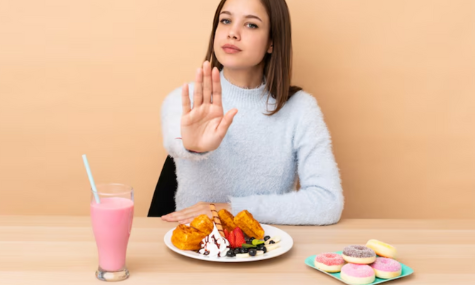Whitening your teeth professionally is one of the most effective ways to enhance your smile quickly and safely. But your results don’t just depend on the treatment itself—what you do afterwards is just as important.
To maintain that bright, white smile, it’s essential to avoid certain foods and drinks in the days following your treatment. This guide explains exactly what to steer clear of—and why—based on expert dental advice and UK private healthcare best practices.
Why Post-Treatment Care Matters
Professional teeth whitening treatments—such as those offered at private dental clinics—use peroxide-based agents to break down stains on the enamel. This process temporarily opens up the pores of your teeth, making them more porous and vulnerable to staining.
For at least 24–72 hours after your whitening session, your teeth are at higher risk of absorbing pigments and acids from what you consume. Neglecting dietary precautions during this window can dull your results prematurely and even cause discomfort.
Foods to Avoid After Teeth Whitening
-
Dark-Coloured Foods
Dark or highly pigmented foods are notorious for staining teeth—even when enamel is healthy. Right after whitening, the effect is even worse.
Avoid:
- Blueberries, blackberries, cherries
- Tomato-based sauces (e.g., pasta sauce, pizza sauce)
- Soy sauce and balsamic vinegar
- Beetroot
- Dark chocolate
- Curry (turmeric and saffron-heavy)
These foods contain strong chromogens (colour pigments) that can re-stain your freshly whitened enamel almost instantly.
-
Acidic Foods
Acidic foods can weaken and erode the already-sensitive enamel after whitening, increasing the risk of long-term damage and making staining more likely.
Avoid:
- Citrus fruits: oranges, lemons, limes, grapefruits
- Pickles
- Vinegar-based salad dressings
- Tomatoes (also a double threat due to acidity and colour)
-
Sugary and Sticky Foods
After whitening, enamel is temporarily dehydrated and more vulnerable to decay. Sticky or sugary foods can stick to the surface and feed bacteria, increasing your risk of cavities.
Avoid:
- Caramel, fudge, toffee
- Chewing gum (unless sugar-free)
- Sweets and chocolates
-
Highly Pigmented Spices
Certain spices are deep yellow, red, or orange in colour and can easily stain teeth when enamel is porous.
Avoid:
- Turmeric
- Paprika
- Saffron
- Red chilli powder
Even trace amounts of these can tint the teeth and undo your whitening results.
Drinks to Avoid After Teeth Whitening
-
Coffee and Tea
Both black coffee and tea (even green and herbal types like rooibos) are rich in tannins, which bind to enamel and cause yellowing.
Avoid:
- Black coffee
- English breakfast tea
- Green tea
- Herbal teas with strong colour (hibiscus, rooibos)
If you absolutely must have coffee, use a straw and add milk to dilute the colour.
-
Red and White Wine
Red wine is acidic and darkly pigmented—a dangerous combination for freshly whitened teeth. Surprisingly, white wine isn’t much better, as its high acidity increases enamel porosity.
Avoid:
- Merlot, Shiraz, Cabernet Sauvignon
- Sauvignon Blanc, Pinot Grigio
-
Fizzy Drinks and Energy Drinks
These drinks are acidic, sugary, and often coloured with artificial dyes—all of which can erode enamel and stain your teeth.
Avoid:
- Cola and other dark fizzy drinks
- Lemonade (despite its light colour, it’s very acidic)
- Sports and energy drinks
-
Fruit Juices
Even though they’re marketed as healthy, most fruit juices are high in sugar and acids, and some are deeply coloured.
Avoid:
- Grape juice
- Cranberry juice
- Pomegranate juice
- Orange and grapefruit juice
What Can You Eat and Drink Instead?
Welcome to the “white diet”—a temporary eating plan recommended after whitening that avoids pigments and acids.
Safe Food Choices:
- Plain chicken or turkey
- White fish
- Cauliflower, potatoes (without gravy)
- Plain rice and pasta
- Eggs
- White bread (without crusty coatings)
- Cottage cheese, yoghurt (unflavoured)
Safe Drinks:
- Still water
- Coconut water
- Milk
- Clear or lightly coloured smoothies (e.g., banana and almond milk)
How Long Should You Avoid These Foods and Drinks?
The most crucial period is the first 24–48 hours post-treatment. However, for best results and lasting whiteness, you should ideally be cautious for up to 7 days. Gradually reintroduce darker or acidic items, and make sure you maintain excellent oral hygiene throughout.
Additional Aftercare Tips for Brighter Results
- Use a straw for any drinks that may cause staining
- Rinse your mouth with water after eating or drinking
- Wait 2–4 hours post-treatment before brushing, then use a soft-bristled toothbrush
- Avoid smoking, as tobacco is a major cause of staining
- Book regular hygiene appointments to keep your teeth professionally clean
When to Speak to Your Dentist
If you experience:
- Rapid return of discolouration
- Gum irritation or inflammation
- Ongoing tooth sensitivity after several days
…contact your dentist. You may need tailored aftercare advice or an alternative whitening product in future.
Conclusion
Your teeth whitening journey doesn’t end at the clinic—it continues with what you eat and drink at home. Avoiding the wrong foods and drinks after your treatment helps preserve your results, protect your enamel, and maximise the glow of your new smile.
Visit here for professional teeth whitening in London and get expert advice on how to keep your smile radiant for the long term. Book your consultation with a trusted private dentist today.
- Foods and Drinks to Avoid After Teeth Whitening Treatment
- Learn which foods and drinks to avoid after whitening your teeth. Protect your bright smile. Visit here for professional teeth whitening in London.
- Foods and Drinks to Avoid After Teeth Whitening
Related posts:
 The Rise of the Probiotic Drink: A Wellness Staple for Gut and Liver Health
The Rise of the Probiotic Drink: A Wellness Staple for Gut and Liver Health
 Empowering Senior Living: A Comprehensive Look at Elder Care Services in India
Empowering Senior Living: A Comprehensive Look at Elder Care Services in India
 What Happens If I Stop Getting Anti-Wrinkle Treatments? – Learn
What Happens If I Stop Getting Anti-Wrinkle Treatments? – Learn
 Nature’s Wrap: Exploring the Biodegradable Packaging Revolution
Nature’s Wrap: Exploring the Biodegradable Packaging Revolution
 Ashtanga Hridayam Book : The Essence of Ayurveda with CSS Banaras
Ashtanga Hridayam Book : The Essence of Ayurveda with CSS Banaras
 How the Neurology and Mental Health Conference 2025 Empowers Patients
How the Neurology and Mental Health Conference 2025 Empowers Patients
 Dentist in Largo Florida – Expert Care with a Personal Touch at Blue Dental Largo
Dentist in Largo Florida – Expert Care with a Personal Touch at Blue Dental Largo
 What Are Common Myths About Laser Vaginal Tightening Treatment?
What Are Common Myths About Laser Vaginal Tightening Treatment?








